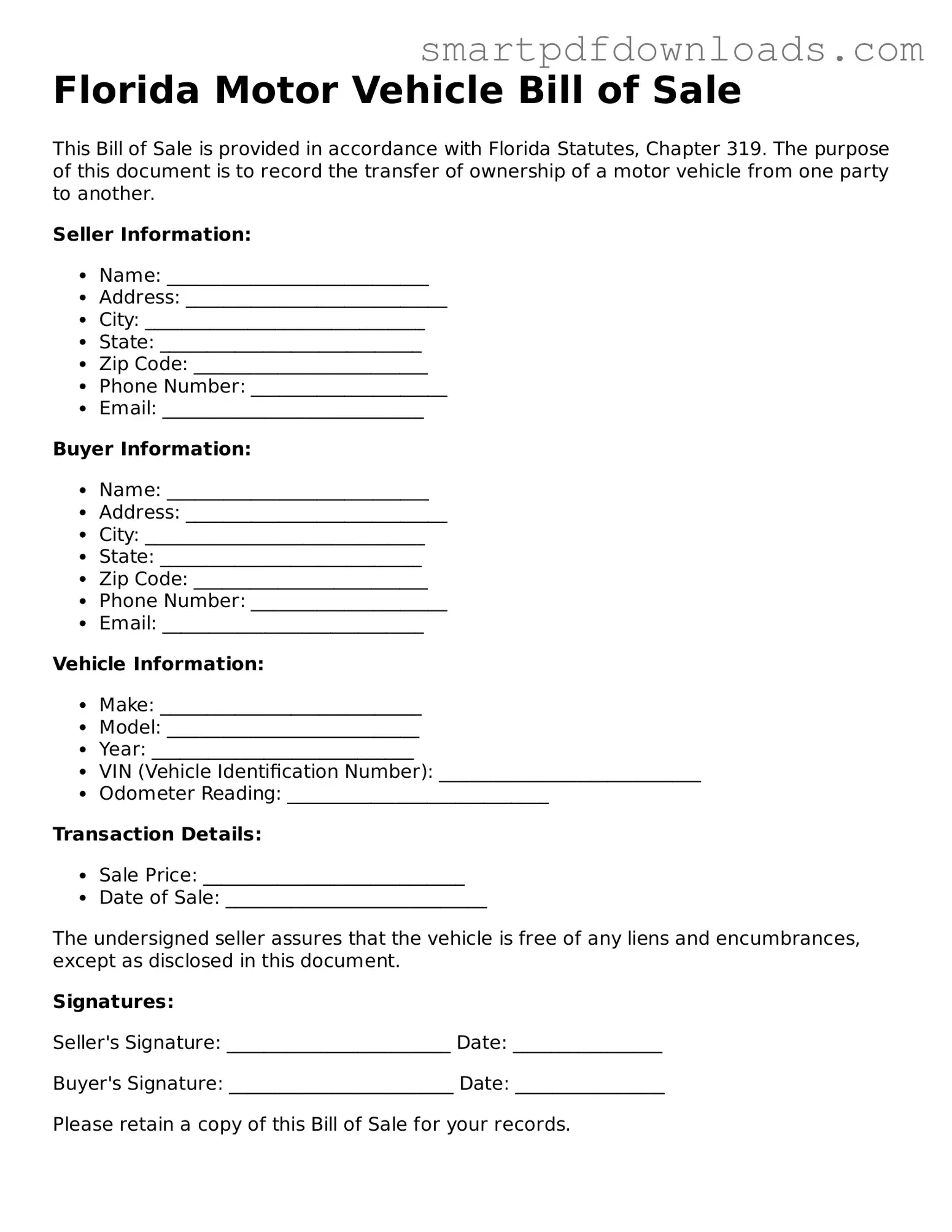Legal Motor Vehicle Bill of Sale Form for the State of Florida
The Florida Motor Vehicle Bill of Sale form is a legal document that records the transfer of ownership of a vehicle from one party to another. This form serves as proof of sale and includes important details about the vehicle and the buyer and seller. Understanding how to properly complete this form is essential for a smooth transaction.
Edit Motor Vehicle Bill of Sale Online

Legal Motor Vehicle Bill of Sale Form for the State of Florida
Edit Motor Vehicle Bill of Sale Online

Edit Motor Vehicle Bill of Sale Online
or
⇓ PDF File
Finish the form and move on
Edit Motor Vehicle Bill of Sale online fast, without printing.